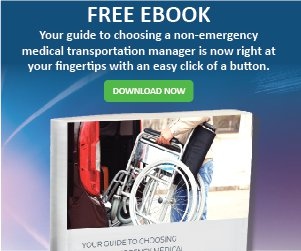 The dream of no longer having to drive a car might not be as far away as you think. The implications and possibilities are huge. Safety. Shortened, smart commutes. Less required cars on the roads. On-time arrivals. The potential elimination of accidents. Elimination? Accidents could indeed become extremely infrequent. Most accidents today involve human error. If you take the human out of the equation and combine it with shared information about traffic jams and rerouting via the cloud, the whole community benefits. Never mind the freedom it provides to seniors, the blind, even teenagers and their carpooling moms.
The dream of no longer having to drive a car might not be as far away as you think. The implications and possibilities are huge. Safety. Shortened, smart commutes. Less required cars on the roads. On-time arrivals. The potential elimination of accidents. Elimination? Accidents could indeed become extremely infrequent. Most accidents today involve human error. If you take the human out of the equation and combine it with shared information about traffic jams and rerouting via the cloud, the whole community benefits. Never mind the freedom it provides to seniors, the blind, even teenagers and their carpooling moms.
Chris Urmson, director of the Google driverless car team, wants his cars to be ready by the time his 11-year-old son is 16, the legal driving age in California. “It’s my personal deadline,” he told Technology Review. They have a solid prototype that’s safely driven 700,000 miles. Google has also contracted with Michigan-based, Roush Industries, an engineering and specialty manufacturing company known for its custom Ford Mustang models, to assemble a test fleet of 100 in 2015 according to Crains Detroit. Take a look at one here.
In just 20 years, autonomous driving will be the norm
Google isn’t ready to bring this car to market on the open road yet, but it’s not the only one in the game either. Almost every major automaker on the planet is working on it. Audi allowed reporters to ride in their autonomous car from Silicon Valley to Las Vegas for this year’s Consumer Electronics Show. Toyota, BMW, Tesla, Apple, Renault-Nissan, and Mercedes Benz are all in development. It will completely transform the auto industry and wipe out others, valets for example. There’s no need for valets if cars can park themselves.
IHS Automotive forecasts total worldwide sales of self-driving cars will grow from nearly 230,000 in 2025 to 11.8 million in 2035. In all, there should be nearly 54 million self-driving cars in use globally by 2035. IHS further anticipates that nearly all of the vehicles in use are likely to be self-driving cars or self-driving commercial vehicles sometime after 2050. Vehicles as we know them could be eliminated in 35 years just like the horse and carriage was.
What’s this mean for the NEMT industry?
Enhanced technology in commercial vehicles means increased safety for patients. It also means that logistics systems will get smarter and smarter with shared information on road conditions streaming in live from drivers. It could also mean that drivers would be able to better care for patients riding in those vehicles. It’s not a matter of ‘if’ this is all coming, but how quickly and what regulations will be in play at the onset both on federal and state levels for self-driving vehicles. The innovations for transportation are well under way.
Who will get there first? Volvo says open roads by 2017
Given the company’s long track record with safety and its vision for elimination of accidents, it should come as no surprise that Volvo could outpace the rest. They recently announced their “Drive Me” program that puts 100 driverless cars on public roads by 2017 in Sweden and they are working closely with transport authorities and legislators to make it happen. Volvo’s new car runs on auto-pilot similar to how a plane does. It can react quicker to emergency situations than a human ever could. Here’s how it works.
Speaking to CNBC at Mobile World Congress this March, Klas Bendrik, CIO of Volvo, said, "The starting point is to put these 100 cars in the streets of Gothenburg (Sweden), driven by normal people on normal roads.” Then plans can unfold for the rest of Europe and the U.S., he said.
Let us know how the driverless car might impact you? If it could take your spouse to work and return home by itself, would you still be a two car family?



